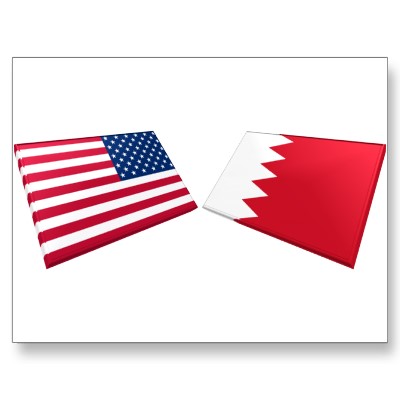 Justin Gengler writes for Foreign Policy magazine:
Justin Gengler writes for Foreign Policy magazine:
In a July 6 interview with Egyptian journalists carried in the Al-Ahram daily, a leading Bahraini revealed that his country's February uprising was "by all measures a conspiracy involving Iran with the support of the United States," the latter aiming "to draw a new map" of the region. "More important than talking about the differences between the U.S. and Iran," he insisted, are "their shared interests in various matters that take aim at the Arab welfare."
Who is this Bahraini conspiracy theorist? A radical Arab nationalist, perhaps? Or a leader of the popular Sunni counter-revolution that mobilized successfully against the Shia-led revolt? Not exactly. In fact, he is none other than Marshal Khalifa bin Ahmad Al Khalifa: Minister of Defense, Commander-in-Chief of the Bahrain Defense Force, and, as his name indicates, a prominent member of Bahrain's royal family. His outburst decrying American duplicity in Bahrain is but the latest in a string of similar incidents and public accusations that once more raise the question of political radicalization in Bahrain. But this time, in contrast to the usual narrative, the radicalization is not emanating from the country's Shia majority.
The rise of this anti-American narrative among Bahrain's pro-government Sunnis can be traced back, ironically, to a March 7 protest in front of the U.S. embassy in Manama organized by Shia political activists. Those present condemned the muted if not outright hostile American response to their then still-hopeful popular revolution. A seemingly trivial detail of that demonstration --- a box of doughnuts reportedly brought to the protesters by the embassy's then-Political Affairs Officer, who had ventured outside to hear their complaints --- provided fodder some weeks later for a widely-circulated online article portraying the official as a veritable enemy combatant. Photographs of him and his family, along with his local address and phone number, would soon appear on militant Salafi forums, where readers were urged to take action against this Hezbollah operative. Within a few weeks, the U.S. embassy had a new Political Affairs Officer; the old one had been very quietly sent home.
Around the same time, Bahrain's most hawkish government newspaper, Al-Watan, ran a series of editorials detailing the U.S.'s alleged duplicitous dealings in Bahrain. Titled "Washington and the Sunnis of Bahrain," the articles chronicled a wide range of U.S. policies and institutions meant to undermine Sunni rule of Bahrain and of the Arab Gulf more generally. These include the State Department's Middle East Partnership Initiative, the National Democratic Institute, Human Rights Watch, and the (subsequently "reorganized") American Studies Center at the University of Bahrain.
In late June, this series gave way to a new and even less-subtly titled one: "Ayatollah Obama and Bahrain", which draws on the president's Muslim name to portray not only a country whose strategic interests have led it to abandon the Arab Gulf to Iran, but a U.S. president who harbors personal ideological sympathies for the Shia. Spanning nearly a dozen issues from June 26 to July 6, the articles ended only after an official protest by the U.S. embassy.